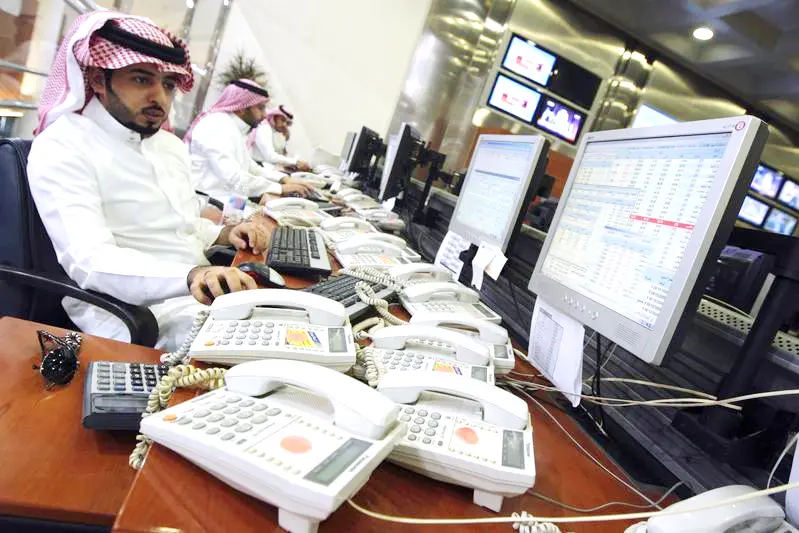PHOTO
24 November 2016
JEDDAH: Fiscal consolidation, coupled with improved non-oil revenues, will mean a smaller-than-anticipated fiscal deficit in Saudi Arabia in both 2016 and 2017, according to economists.
In their latest macroeconomic update, researchers from Jadwa Investment have also revised some of their 2016 and 2017 forecasts to take into account the recent set of fiscal reforms and economic data.
“Since the start of 2016, and in line with targets specified in the National Transformation Program (NTP 2020), prudent policies to reform the fiscal budget have been taken,” said Fahad Alturki, chief economist and head of research at Jadwa Investment in Riyadh.
The commencement of an international sovereign bond issuance program will have a dual benefit of protecting FX reserves and reducing pressure on domestic liquidity, according to the Jadwa report.
The Jadwa economists expect the Ministry of Finance to take steps to gradually register, list and trade government debt instruments on the Saudi stock exchange, thereby establishing a benchmark yield curve. “Meanwhile, the current account deficit is also forecast to be smaller than anticipated, mainly due to lower-than-expected value of imported goods and services,” said the report.
“Along with the international bond issuance, several other efforts by the government have halted the sharp rise in the cost of funding, as interbank rates have stabilized recently,” said the economists.
“Despite the hike to energy prices at the end of 2015, inflation continued on a decelerating trend, which we believe is reflective of the slowdown in consumption,” they said.
The Jadwa researchers expect Saudi Arabia’s economic performance to remain positive for the remainder of 2016.
“We forecast overall GDP growth to reach 1.1 percent and 0.6 percent in 2016 and 2017, respectively, with oil sector GDP growing by 2.1 percent and 0.6 percent over the next two years,” said the economists.
Non-oil GDP is forecast to reach 0.3 percent and 0.5 percent during the same period, they said.
“The contribution of oil production to annual economic growth is likely to remain on the positive side. Albeit at a slower pace, we expect private sector growth to remain positive at 0.7 percent, as the recent moderation in credit growth is expected to ease following the recent issuance of international sovereign bonds and the resumption of government payments,” said the Jadwa report.
Business surveys point toward an expansion in the non-oil private economy in 2016, with the non-oil purchasing managers’ index averaging 54.8, year-to-October, slightly down from the full-year average of 56.7 in 2015. Year-on-year growth in broad money supply (M3) turned positive in October for the first time since the start of 2016, according to the report.
JEDDAH: Fiscal consolidation, coupled with improved non-oil revenues, will mean a smaller-than-anticipated fiscal deficit in Saudi Arabia in both 2016 and 2017, according to economists.
In their latest macroeconomic update, researchers from Jadwa Investment have also revised some of their 2016 and 2017 forecasts to take into account the recent set of fiscal reforms and economic data.
“Since the start of 2016, and in line with targets specified in the National Transformation Program (NTP 2020), prudent policies to reform the fiscal budget have been taken,” said Fahad Alturki, chief economist and head of research at Jadwa Investment in Riyadh.
The commencement of an international sovereign bond issuance program will have a dual benefit of protecting FX reserves and reducing pressure on domestic liquidity, according to the Jadwa report.
The Jadwa economists expect the Ministry of Finance to take steps to gradually register, list and trade government debt instruments on the Saudi stock exchange, thereby establishing a benchmark yield curve. “Meanwhile, the current account deficit is also forecast to be smaller than anticipated, mainly due to lower-than-expected value of imported goods and services,” said the report.
“Along with the international bond issuance, several other efforts by the government have halted the sharp rise in the cost of funding, as interbank rates have stabilized recently,” said the economists.
“Despite the hike to energy prices at the end of 2015, inflation continued on a decelerating trend, which we believe is reflective of the slowdown in consumption,” they said.
The Jadwa researchers expect Saudi Arabia’s economic performance to remain positive for the remainder of 2016.
“We forecast overall GDP growth to reach 1.1 percent and 0.6 percent in 2016 and 2017, respectively, with oil sector GDP growing by 2.1 percent and 0.6 percent over the next two years,” said the economists.
Non-oil GDP is forecast to reach 0.3 percent and 0.5 percent during the same period, they said.
“The contribution of oil production to annual economic growth is likely to remain on the positive side. Albeit at a slower pace, we expect private sector growth to remain positive at 0.7 percent, as the recent moderation in credit growth is expected to ease following the recent issuance of international sovereign bonds and the resumption of government payments,” said the Jadwa report.
Business surveys point toward an expansion in the non-oil private economy in 2016, with the non-oil purchasing managers’ index averaging 54.8, year-to-October, slightly down from the full-year average of 56.7 in 2015. Year-on-year growth in broad money supply (M3) turned positive in October for the first time since the start of 2016, according to the report.
© Arab News 2016





















